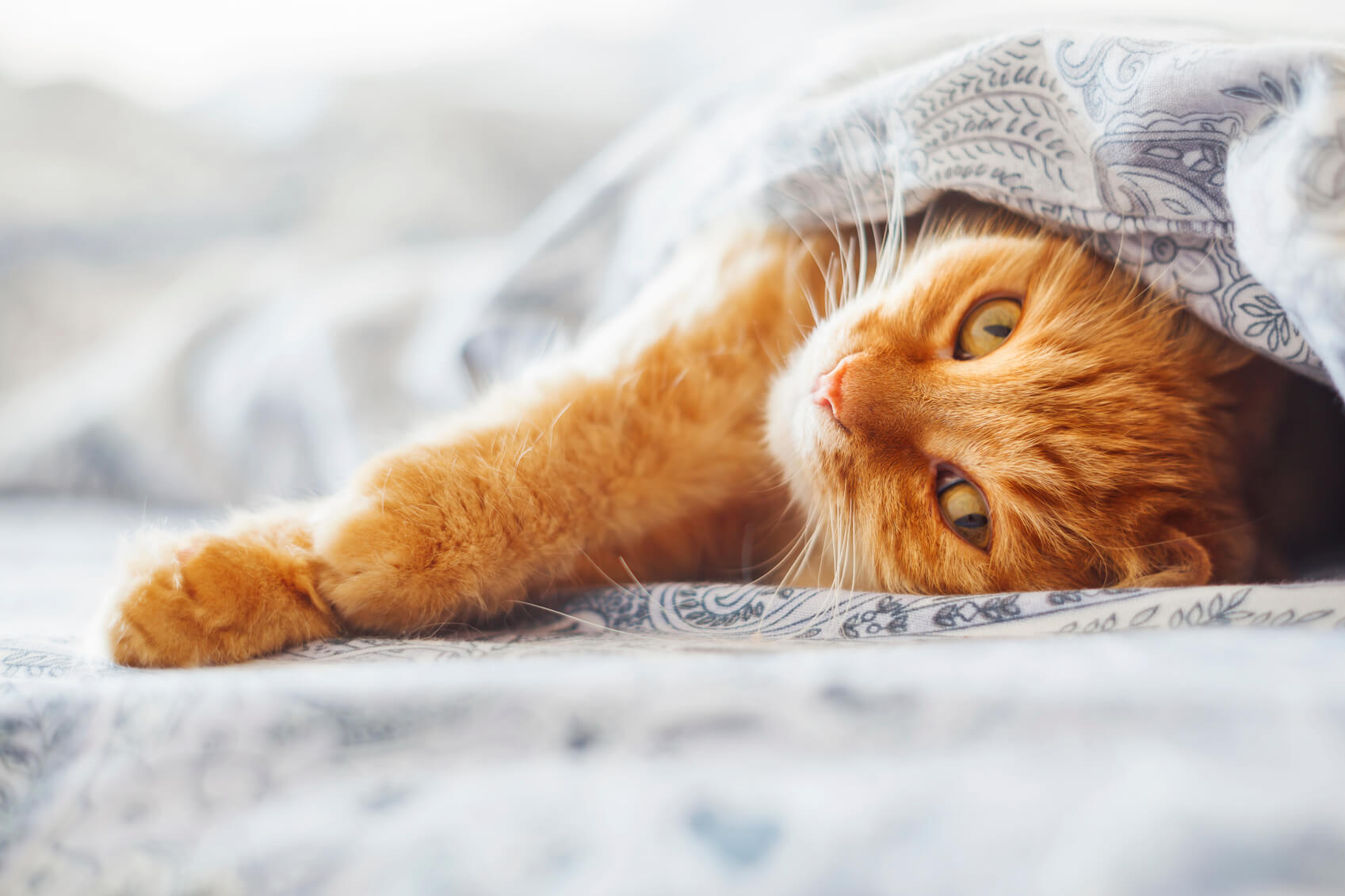While some cats are more active than others at night, this comes as no surprise because cats are naturally nocturnal animals, meaning they prefer to sleep during the day and hunt at night.
Just because your kitty is domesticated and has easy access to food doesn't mean that the sleep pattern will shift as soon as you bring her home. Her instincts for night time activity may take over.
It takes some time to gradually change her schedule and shift play time away from late at night, or for you to learn how to live with the behavior of your nocturnal kitty.
Here are some steps to help you both:
Work with your kitty to re-schedule her instincts by keeping her active in the day time. If you are consistent with the cat's new routine, she can adjust to a more desirable schedule quickly.
Shifting Play Time to Day Time
- Play with your cat in the evening before bedtime or throughout the day.
- If you see your cat sleeping during the day, gently wake her up and encourage play.
- Use interactive toys to entice curiosity and wakefulness during the day, especially when you are not home to play with her.
- Allow your cat to safely explore the outdoors during the day to stimulate her brain.
- Try to ignore the nighttime behaviors. Giving a response will provide your cat the engagement she is looking for and she will just want to play more.
Keeping the Bedroom Quiet
Changing the behavior may be your first route of action, but living with your cat requires some compromise. The play schedule shift may take time and patience, so you may need to change some of your habits, too.
- Set the tone that the bedroom is a no-play zone and keep all cat toys out of the room.
- Of course cats can decide that rolled up socks and paper scraps are fun too so put away other potential “toys” as well.
- Keep the bedroom door closed while you sleep.
- Use a fan or a sound machine to drown out outside noises if you are a light sleeper.
- Designate an area or room away from the bedroom as the play space so you won't hear as much commotion.
Because night activity is a natural instinct in cats, it can take time for certain felines to adjust even while others quickly change their habits.
Be patient with your kitty and you will both be much happier in the long run.





